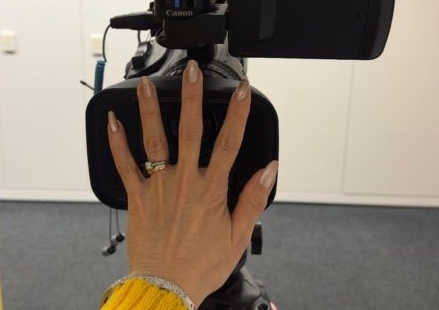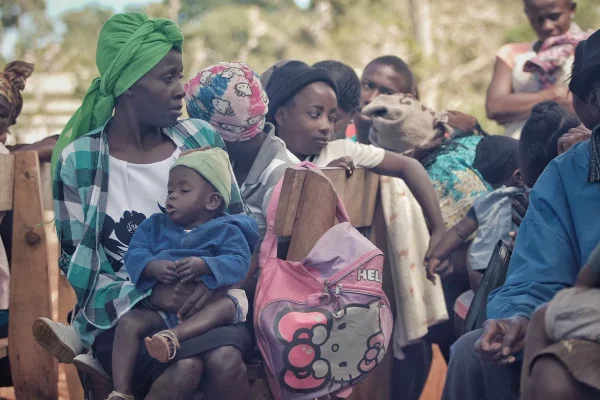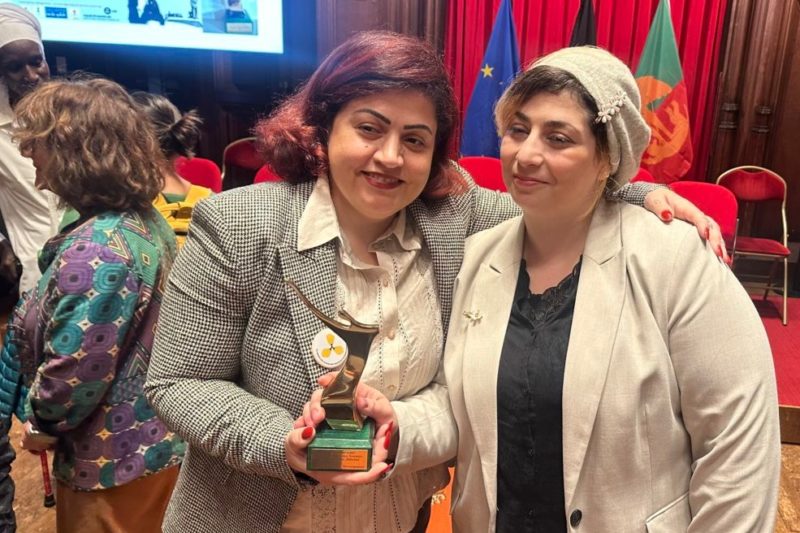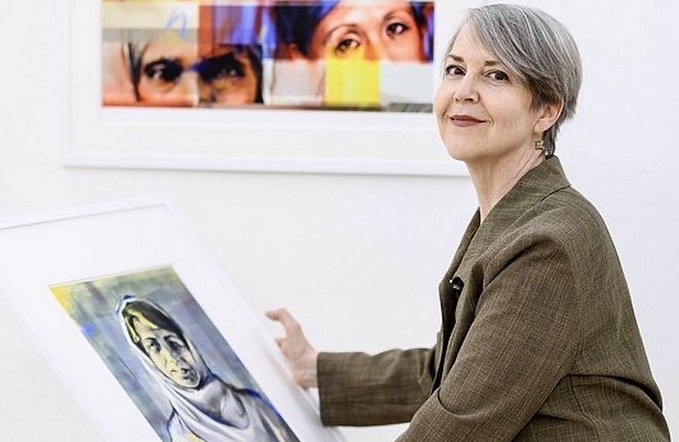Journalism in Afghanistan : the Taliban use media to advocate for themselves and promote their agenda (6/6)

In the series of interviews with female journalists from Afghanistan, we listen to the story of Somaya Walizada. She undertook a dangerous migration journey, finally reaching Germany. From afar, she continues her fight.
This time, in the series of interviews with female journalists from Afghanistan, we listen to the story of another journalist, Somaya Walizada, who lived under the oppressive rule of the Taliban for a short period and was eventually forced to leave the country. She undertook a dangerous and circuitous migration journey, finally reaching one of the European countries from Turkey. Now, from afar, she continues her fight for the freedom of other women in Afghanistan.
To begin, please tell us a little about yourself and how you assess these three years
“I am Somaya Walizada, an investigative journalist from Afghanistan, and I currently live in Germany. Although the journey from Afghanistan to Turkey seemed geographically easy, it was accompanied by thousands of fears and worries, wondering if I would be able to leave the country or not. Fortunately, I succeeded, but the journey from Turkey to here was not without challenges and concerns. With the help and cooperation of friends, I overcame many difficulties and managed to reach Germany, where I am now studying.
I completed my Bachelor’s degree in journalism from the Faculty of Journalism at Herat University in Afghanistan, and my Master’s degree in political science and public administration from one of Istanbul’s prominent universities. I began my journalism career in 2011 with Radio Sada-e-Jawan and the Pagaah Newspaper at Herat University, and from 2016, I worked as an investigative journalist for the Kalid Group in western Afghanistan. Additionally, I served as the Deputy Head of the Women Journalists’ Organisation in western Afghanistan and worked as a researcher for producing documentary reports for international networks.
“Every day a new rule came out to restrict women.”
In Herat, a traditional and conservative city, it was taboo for girls to work in journalism, and only a few women worked in Herat’s media. For me, starting this career was not without difficulties, but fortunately, my family supported and encouraged me, which helped me continue my work despite the challenges of Herat’s traditional society.
After the collapse of democracy in Afghanistan it becomes difficult to work there. Every day a new rule came out to restrict women and prevent us from living our normal lives. So I applied to study in Turkey. While continuing my Master’s degree, I resumed my work on the ‘Kite Runner’ project in the media sector, focusing more on investigative reports on human rights violations, particularly the rights of women and children.
“In reality, we are not free, and security is not guaranteed at all.”
I also serve as the Head of the Communications and Advocacy Committee at the Afghanistan Journalists’ Centre, collaborating with Faraz Media Production and working as a freelance journalist in producing documentaries.
In a democratic environment, journalism provides us with many freedoms, but working under the Taliban, who have taken away all those freedoms, is a completely different experience. Today, we are merely spokespersons, writing and publishing whatever the Taliban wants. Our role in producing reports is nil.”
Do you have any limitations in choosing topics or interviews?
“In terms of principles, I do not have limitations in choosing topics, but due to the severe restrictions imposed by the Taliban and the difficult access to sources, I can rarely follow some topics. The safety of our sources is a priority, and I mostly conducted interviews with victims of human rights violations, particularly women who have suffered severe violence in Taliban prisons. Unfortunately, it is very difficult for the moment as even I no longer have access to sources. In reality, we are not free, and security is not guaranteed at all.”
Are you concerned about the security of yourself and your family?
“Yes, in a situation where there is no security or legal guarantee for the safety of the people of Afghanistan, it is natural to be more worried about the security of myself and my family than ever before.”
As a female journalist, how do you assess the Taliban’s rule?
“Working under the Taliban’s rule is extremely difficult and dangerous for female journalists. Since the Taliban regained power, they have imposed severe restrictions on media freedom and women’s rights. Female journalists in Afghanistan face unprecedented restrictions in news coverage and public presence. Many female journalists have had to leave their profession or work undercover.
“This situation has led to the silencing of women’s voices in the media.”
The main challenge is the threat of violence and arbitrary arrests. The Taliban regularly arrest and interrogate journalists for criticizing their policies, and these threats are even more severe for female journalists. The Taliban closely monitors news coverage of women and even their manner of dress. In many cases, media outlets have completely stopped allowing female journalists to work. This situation has led to the silencing of women’s voices in the media and the erasure of realities for society in Afghanistan.”
Are you satisfied with the working conditions?
“No. The Taliban have implemented laws that deprive women of their basic rights, such as the right to work, education, and presence in public spaces. For a female journalist, these restrictions mean the complete loss of access to news sources, interviews, and participation in essential meetings and events for journalism work. Given the unstable situation in the country and the Taliban’s restrictions, I see my professional future as bleak and uncertain, and I fear that no opportunities for professional growth will remain.”
Do committees supporting journalists provide you with any support?
“In the current situation, committees and organizations that support journalists only serve as platforms for advocating on behalf of the media community and can draw international attention to Afghanistan’s problems.”
Finally, what are your demands, and what do you expect from the international community and the European Union?
“As a female journalist, I have requests for the European Union and the international community, with the main goal of preserving women’s rights, and freedom of expression in Afghanistan, and supporting female journalists against the Taliban’s oppression.
“I call on the international community not to forget Afghanistan and women’s rights.”
These requests include the following:
- Political and diplomatic pressure on the Taliban to respect women’s rights, especially the right to work and education. The imposition of sanctions and the conditioning of international aid on the respect for human rights.
- Financial and technical support for independent media that have been shut down or weakened under Taliban pressure.
- The establishment and strengthening of supportive and asylum programmes for journalists at risk.
- Support for the education and empowerment of Afghanistan women abroad to help improve their knowledge and skills.
- Legal and international support for documenting and pursuing human rights violations and the suppression of freedom of expression.
In general, I call on the international community not to forget Afghanistan and women’s rights, and to consistently apply more pressure on the Taliban to preserve individual and social freedoms, while providing the necessary support.”
Radio Begum suspended
The Taliban’s Ministry of Information and Culture suspended Radio Begum for alleged violations of broadcasting policy. Authorities raided the women’s radio station, arresting two employees. The Taliban’s crackdown has shut down 12 media outlets in a year. Over 140 journalists have been arrested, and 80% of women have left the profession. Those who remain face severe restrictions. Radio Begum was founded on International Women’s Day in 2021 and focused on women’s programming, including education and counseling.




